The world is changing rapidly. Profound advancements in technology impact every aspect of our daily lives, both big and small. Our economy is changing, The way we work is changing. The way we eat, build, and travel is changing. Everything is changing—so why isn't education?
That question was at the heart of the talk given by Travis Allen at the K12 Facilities Forum. He asked the audience, "Are we preparing our students for the real world that they're walking into?" Though delivered as a rhetorical question, his implied answer was "No."
Technology Everywhere, Except in the Classroom
For the most part, we have welcomed the rapid changes technology has brought us—for better or worse—with outstretched palms. Except in education.
Sure, most classrooms nowadays have computers and some schools assign students their own tablets to use, but if a child is caught using their smartphone, that cell phone might get confiscated, the student's parents called, and the student possibly even suspended.
Which is exactly what happened to Allen when he got his first smartphone in high school and decided to use it to take notes in class. His teacher took his phone and sent him to the principal who called his parents. He went home and vented his frustration to them; his dad simply told him, "If you don't like education, do something about it."
He took that advice to heart, spending four months making a video showing how one-to-one mobile learning will transform education. That video went viral, getting shared all over the world and catching the attention of people like Steve Jobs, and that is how Allen suddenly found himself in the education space—all because his father encouraged him to go out and solve what he saw as a problem.
Teach Kids How to Solve Problems That Technology Can't
Allen created the iSchool Initiative while he was in college and has been doing the work of education advocate and reformer ever since. At its core, he explained, the iSchool Initiative is committed to reimagining what learning looks like in the classroom and developing students who can solve problems that technology can't.
Not only do we need to start embracing technology's role in education, Allen argues: we also have to stop training our students to compete with technology and artificial intelligence. AI is great at memorizing information and doing repetitive tasks, but not thinking for itself. The students of today need to be taught how to creatively solve the problems of tomorrow that technology alone can't solve.
"How do we create an army of students who are going to thrive and solve some of the greatest problems that our world is going to face?" Allen asked. "Specifically, how do we invest in human intelligence?"
"If you can solve problems using human intelligence, you will always have a job"
In this Age of Information, in which the entirety of humankind's accumulated knowledge is just a few finger taps away, what are the things that students need in order to thrive and be successful? The skillsets that make us uniquely human are the ones we need to develop in our students now, because those are the skills that will be most valuable in the future—skills like critical thinking and problem solving, collaboration, curiosity, imagination, agility, adaptability, and communication. These are skills almost every working adult uses in their daily lives as it is, and yet these are not the skills being taught in classrooms.
Allen believes that the thing we most need to thrive is the ability to solve problems. "If you can solve problems using human intelligence, you will always have a job," he said. "You will always have a purpose. Someone will always be willing to pay you for something, whatever that thing might be."
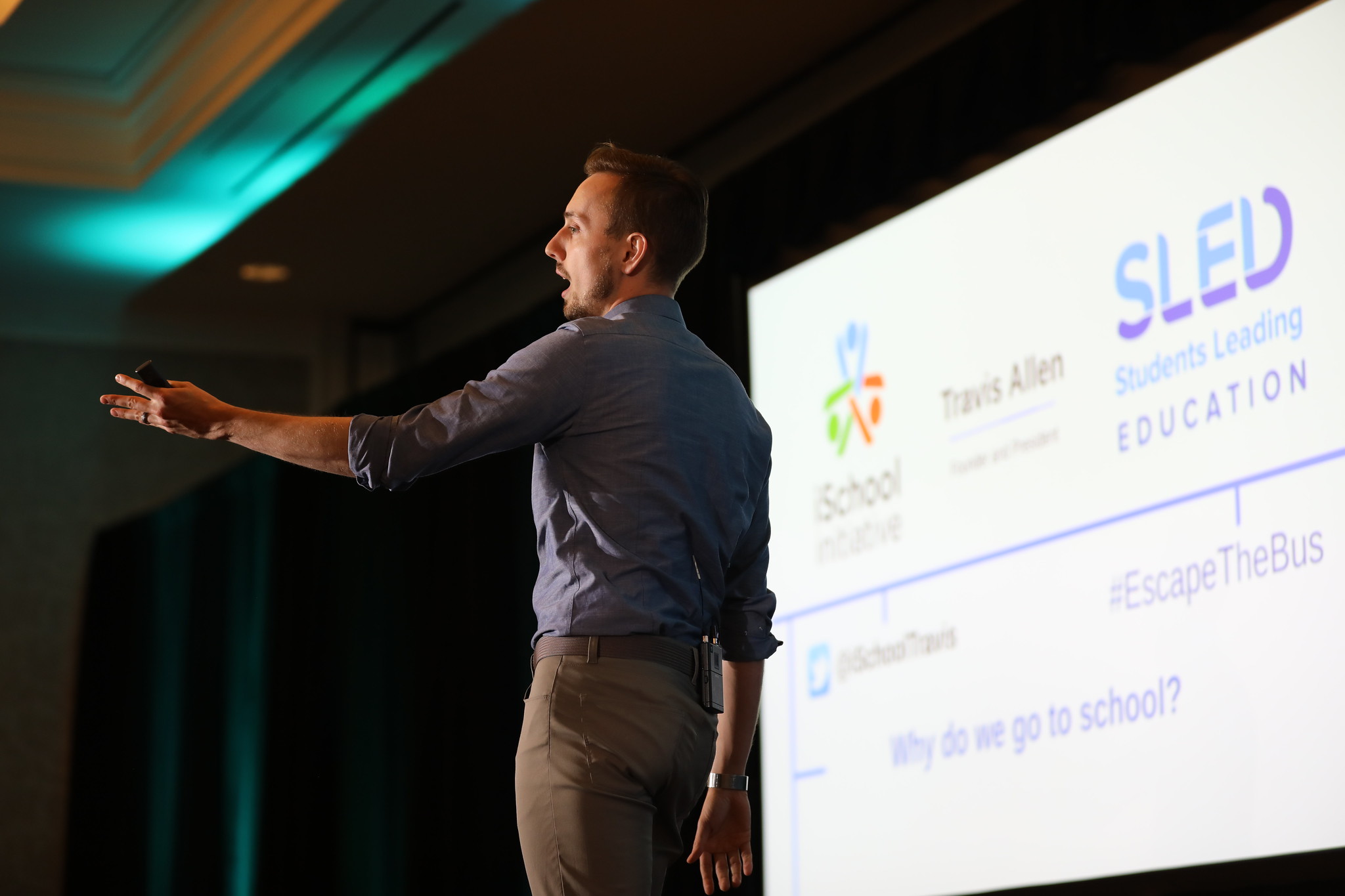
Creativity on the Decline
But when creative problem solving is needed now more than ever, our creativity skills have been steadily declining since 1990. And while some would argue that technology is to blame, stripping us of our need to think, Allen says that the technology itself isn't the problem, and posits that thereare other factors to blame.
The first culprit for the decline in creativity is helicopter parenting, he argues. "We have created a culture that does not allow for our kids to fail or to work through things on their own, and because of this we have generations that are struggling." And it's not just helicopter parents but also helicopter teachers, helicopter administrators, a whole helicopter culture that believes we have to protect children from the world rather than actually prepare them for it. They never learn to solve problems on their own, because they're never confronted with problems to solve.
The second reason for the decline in creativity is rooted in our whole understanding of what school is and why we go. We don't go to learn; we go to get good grades so we can get into college and then get a good job, because that's what we've been told to do. We're not in school to better ourselves. We're not in school to learn to be problem solvers. Kids are taught to seek the path of least resistance to get the "A," which is why they want teachers who are easy and also why we are a nation of great test-takers: skilled at memorizing information, taking a test, and forgetting it all the next day.
What if instead, he asked, schools were a safe place to solve problems every single day; places where kids can go and fail, try new things, experiment, and solve real world problems? What would school look like if that were our objective?
"We have created a culture that does not allow for our kids to fail or to work through things on their own"
The third issue is that the questions we ask in school haven't changed. Where questions like, "Who was the 15th President of the United States?" once had value because students developed problem-solving skills in seeking out the answer, now students need only ask Siri. The same goes for traveling from point A to point B: previously we had to assess information through maps and getting to our destination required agility, adaptability, and communication skills; now we just enter our destination in Google Maps.
Once again, some might say the solution is to ban the use of technology in schools, but that's not at all practical: in the real world, kids, who will later be adults, will have access to that technology. Instead, we need to develop the human intelligence skills that are complemented by the use of technology. We need to teach the things that aren't "Googleable," Allen said, because if all we're doing is asking Googleable questions, then the entire American education system should just be replaced by Google.
Retrain Educators to Train Students Differently
The iSchool Initiative has been working on this education movement for the last seven years, sharing their message and challenging teachers and administrators to get uncomfortable. They travel to different cities offering professional development to educators, administrators, and students through a number of different programs.
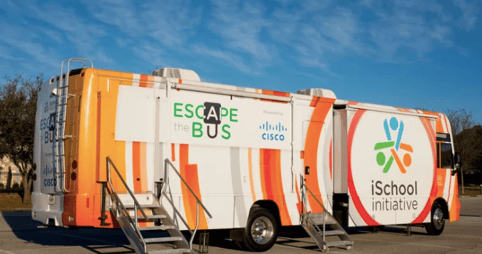 |
| iSchool Initiative mobile classroom |
Their leadership training program called SLED ("Students Leading Education") is designed to empower students to become the best problem solvers that they can be. It starts with a three-day training, during which administrators are asked to treat the students as if they were consultants and present to them the greatest problems that they're facing as a campus. Students then have 24 hours to pitch a Shark Tank-style presentation on how they're going to solve those problems over the course of the year.
Allen said that one of the biggest problems the students present on is lackluster and run-down facilities. One solution students often propose is running a fundraiser to repaint the buildings or clean up the campus because they want to feel a sense of pride and excitement walking into the building.
"We talk about lack of resources and the challenges we face as we put out so many fires every single day, but our students can be part of the solution, they don't just need to be the problem, and they can learn problem-solving skills along the way."
Allen's final parting thought to the audience of school district facilities leaders was that their role is vitally important in helping to shape the vision of innovation in education.
"You need to make sure that you have a seat at the table when it comes to that vision, not afterwards when things go wrong and you get tapped for it then," he said. "We need to be part of that journey together, and above all else, as you think about your job and your role in education, how are you creating problem solvers and students to help be a part of your team, not against your team?"

Posted by
Join us at the K12 Facilities Forum!
The community for district and facilities leaders
Nov 8-10, 2026 | San Antonio, TX



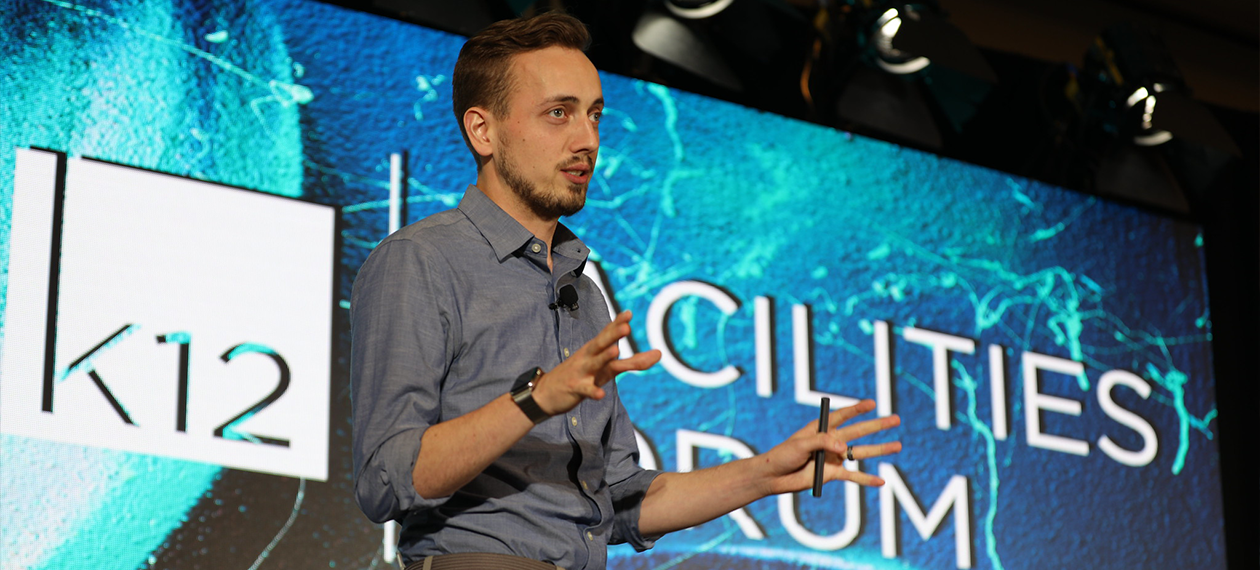

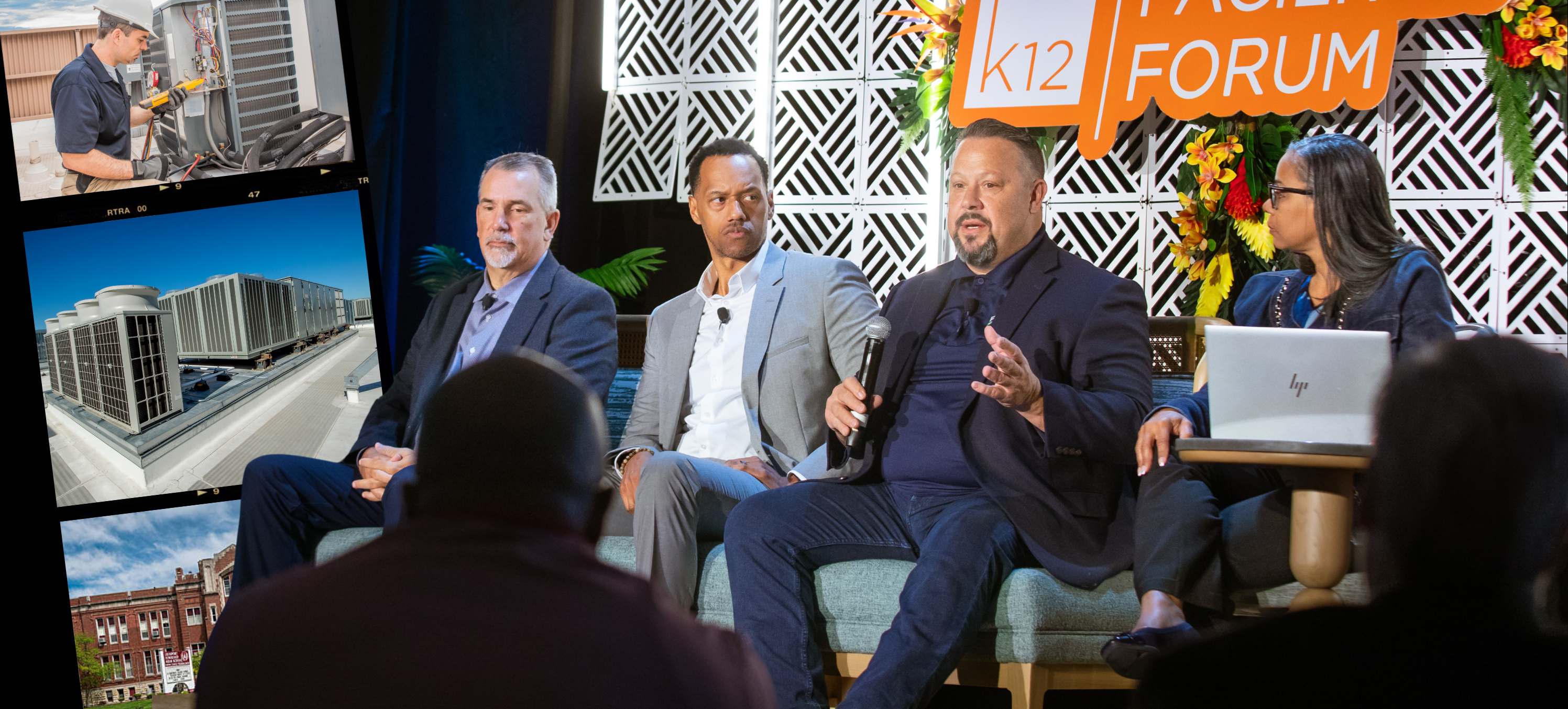
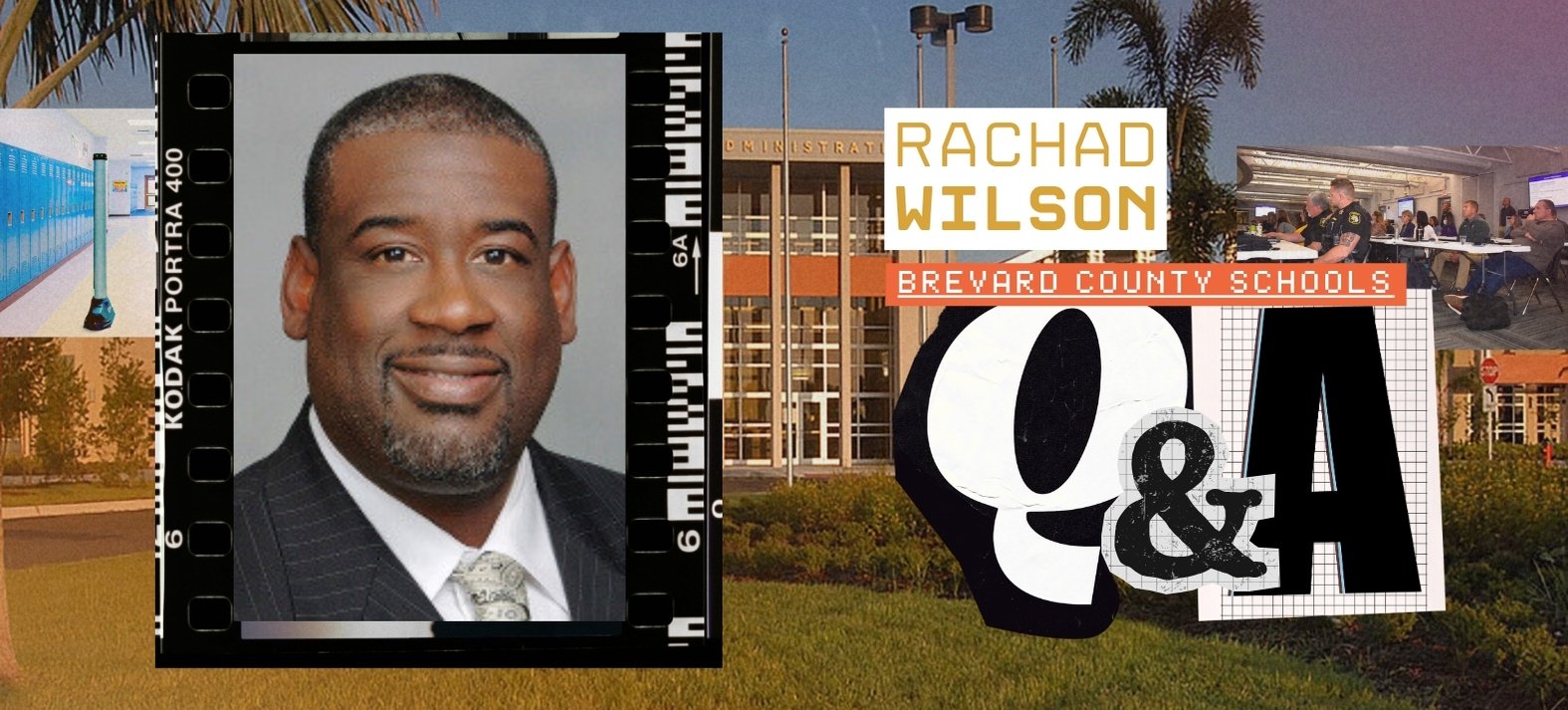
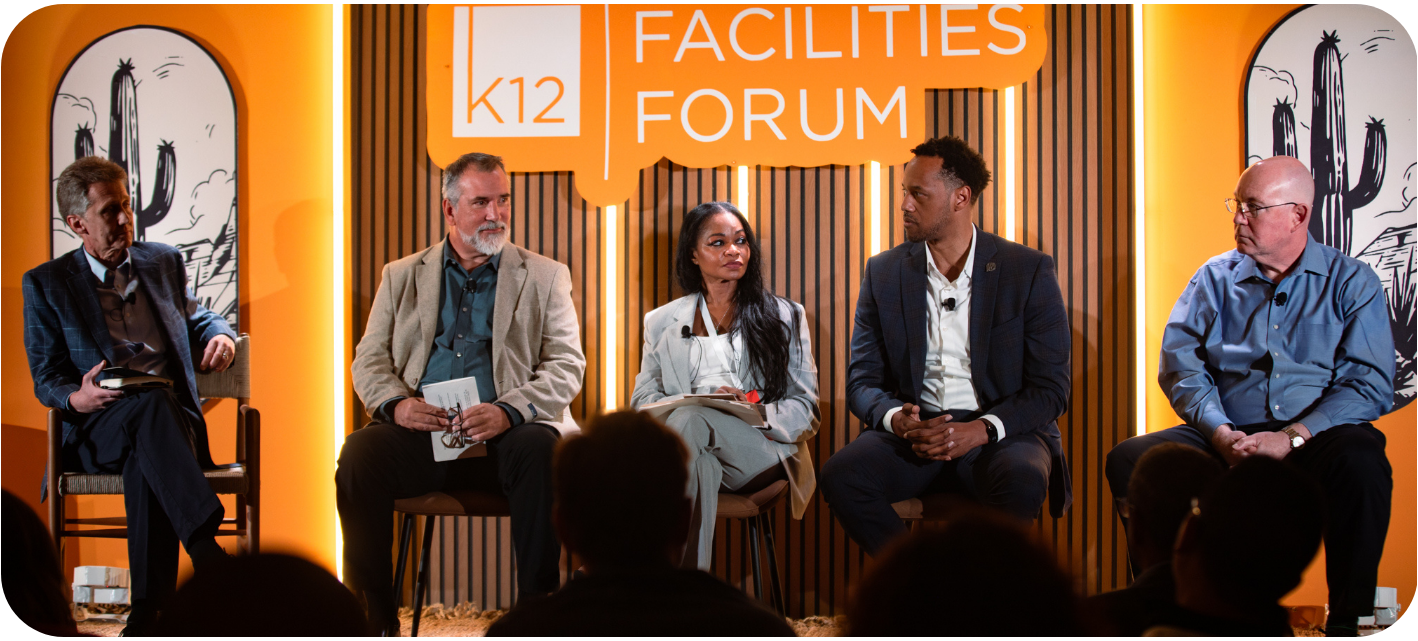
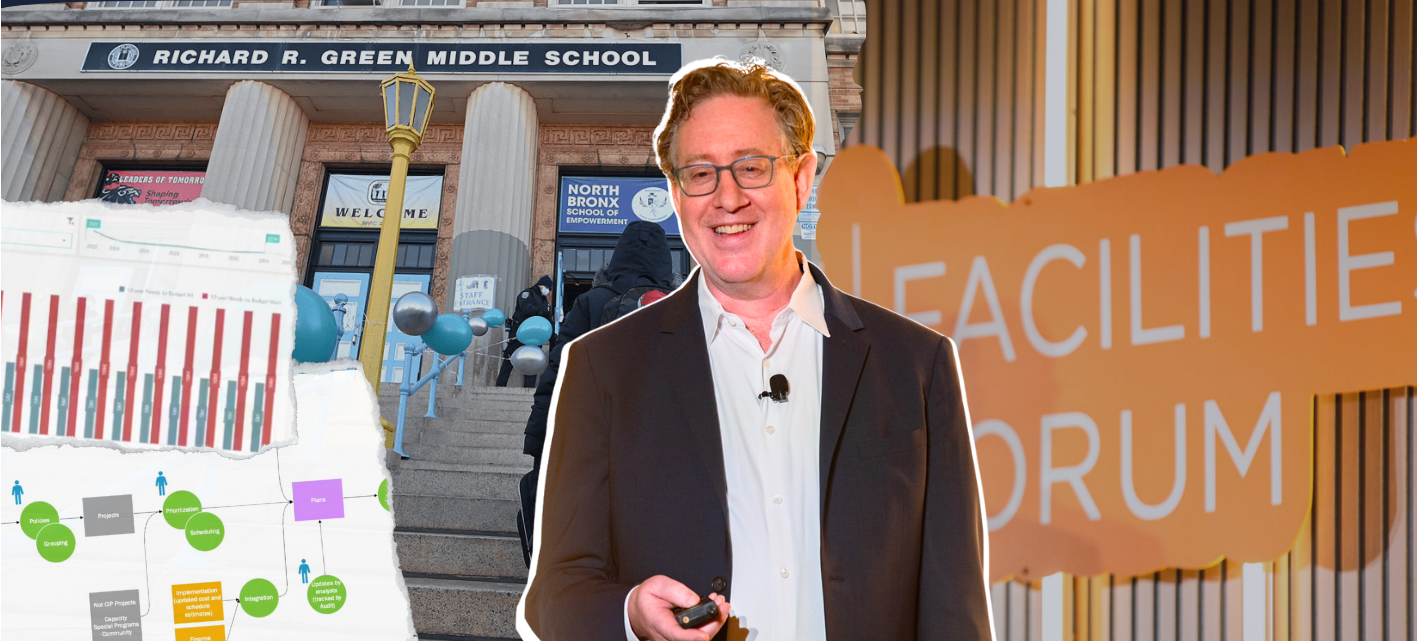


Comments